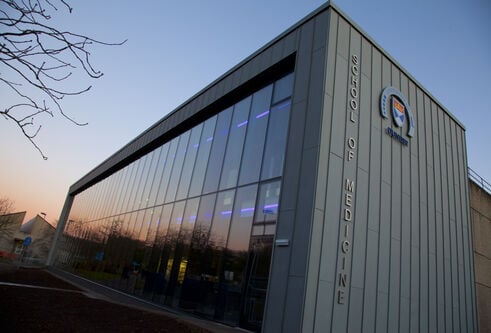
Contact
Biography
Colin graduated from University of Edinburgh, with Honours in Pharmacology with Industrial Experience (Pharmagene). Afterwards he gained five-years experience working in industry as a functional pharmacologist for Asterand Bioscience, conducting tissue bath and myography pharmacology studies in human samples. He obtained his doctorate under the supervision of Prof Ajay Shah at BHF Cardiovascular Centre of Excellence, King’s College London, as part of the augural cohort on British Heart Foundation 4-year PhD program. His work investigated the “Influence of endothelial NADPH oxidase on cardiac fibrosis and remodelling in the hypertensive heart.” utilising murine cardiovascular techniques such as pressure-volume loops, echocardiography and telemetry. Subsequently, Colin moved to the USA, conducted post-doctoral training with Richard Cohen and Reiko Matsui at the Whitaker Cardiovascular Institute, Boston University investigating redox signalling in neovascularisation in type-2 diabetes.
In 2014 he was awarded a highly competitive Marie Skłodowska-Curie International Incoming Fellowship to move back to the UK and transfer in vivo cardiovascular phenotyping techniques to Aston Medical School with Prof Asif Ahmed. Where he developed a successful multidisciplinary PhD training program for Horizon2020 Innovative training network, iPLACENTA. Involving a collaborative network between 11 academic, clinical and industry institutes across Europe training 15 PhD students. In 2017, he received the Aston University prize for research.
Colin joined the faculty as a lecturer in Systems Medicine, School of Medicine, University of Dundee in March 2018 and bringing the coordination of iPLACENTA-ITN to University of Dundee. Colin’s research focuses on the pathophysiological role of redox signalling in cardiovascular disease including preeclampsia and peripheral artery disease.
Research
Dr Murdoch’s research aims to understand how redox signalling affects cardiovascular pathology, focusing on signalling in the endothelium and currently funded by Hoizon2020 Marie Curie and Tenovus.
It is now widely accepted that oxidative stress does not only induce cellular damage but is involved in intricate signalling pathways in physiology and pathophysiology. A major way in which redox signalling occurs is through oxidative post-translational modifications. Work in the Murdoch lab combines cell specific transgenics and in vivo phenotyping techniques with molecular biology to decipher how redox signalling regulate cardiovascular disease, such as cardiac diastolic dysfunction, ischemic neovascularisation and preeclampsia.
The current focus of research in the Murdoch lab involves investigating how oxidative post-translational modification of thiols contribute to the preeclampsia phenotype. In pregnancy, oxidative stress is explicitly linked preeclampsia, with high levels measurable both in the placenta and maternal circulation. Yet, it is poorly understood which proteins/pathways are modified by oxidative stress and how oxidative post-translational modifications can modify the preeclampsia phenotype. Dysregulation of angiogenic factors, such as high soluble Flt-1 (sFlt-1) levels are established as major culprits in the development of the ‘preeclampsia phenotype’ of high maternal blood pressure and proteinurea, associated with increased endothelial dysfunction and prevalence to cardiovascular disease.
Current Research Projects
iPLACENTA
Dr Murdoch is the coordinator and founder of iPLACENTA, a €3.9 million Horizon 2020 innovative training network (ITN). A multi-disciplinary network of 11 European partners delivering post-graduate training for 15 Early stage researchers (ESRs/Ph,D). The principal research aim of iPLACENTA is to improve the ability to study, model and visualise the placenta to enhance investigation and prognosis of complicated pregnancies such as preeclampsia and intrauterine growth restriction. Integrating organ-chip technology and mathematical modelling, with innovation in visualising and assessing placenta health in the clinic and pre-clinical models. The research will interconnect to unlock the complexity of placental disease, providing mechanistic clues for complex diseases, new ways to model placenta function, validate novel clinical diagnostic tools and characterise in vivo pre-clinical models. The PhD training programme aims to equip the ESRs with the necessary skills to meet the challenges of cutting-edge translational research alongside topics such as OpenScience, entrepreneurship, project management and business skills. See www.iplacenta.eu
Media availability
I am available for media commentary on my research.
Contact Corporate Communications for media enquiries.
Areas of expertise
- Heart disease
- Liver disease
PhD Projects
Principal supervisor
Stories
Press release
There was triple triumph for the University of Dundee at a major national awards ceremony.
Press release
Researchers from the University of Dundee’s Schools of Medicine and Science and Engineering have been working to develop a new device capable of capturing images of blood flow during keyhole surgery.
Press release
A placenta on a chip developed at the University of Dundee has the potential to transform research into life-threatening conditions in pregnancy.
